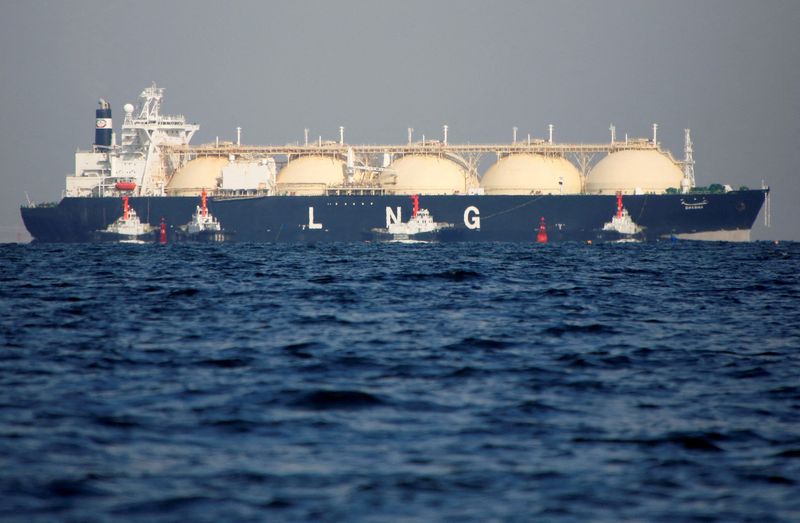By Yuka Obayashi and Emily Chow
TOKYO/SINGAPORE (Reuters) -Japan is back in the spotlight for liquefied natural gas producers as the boom in artificial intelligence, rising costs for cleaner energy and a new national energy plan drive appetite for long-term LNG deals.
While imports by China, the world’s biggest LNG importer, are expected to fall this year, buyers in number two Japan are securing long-term supply deals again, including a potential landmark deal with Qatar.
Japan’s LNG imports had fallen for a decade as nuclear power plants, idled after the Fukushima disaster, restarted and as renewable energy sources increased.
Data centres are expected to use enormous amounts of power to sustain the AI boom, while Japan’s 7th Strategic Energy Plan in February identified gas as a realistic transition fuel for the nation’s goal of zero net carbon emissions by 2050 and “an important energy source even after carbon neutrality”.
“We had expected that electricity demand in Japan would decline, but the growth of data centres is bending that curve,” Yukio Kani, global CEO of JERA, the country’s top power generator and LNG buyer, told Reuters. “If we want quick solutions for data centres, Japan needs LNG. That is one external change.”
Rising costs have also dimmed prospects for alternative fuels like hydrogen and ammonia, Kani said.
“Until two or three years ago, we expected faster development of ammonia, but now we have to pause,” he said. “So we’ve been shifting back to LNG over the past year or so.”
‘STILL IN THE MIX’
In Japan’s energy plan, the Ministry of Economy, Trade and Industry forecast annual LNG demand would fall to between 53 million and 61 million tons in 2040 if it met its emissions reductions target, from 66 million tons last year. But in a risk scenario where decarbonisation technologies lag, METI forecast demand could instead rise to 74 million tons.
The plan calls for public-private cooperation to secure long-term contracts for the super-chilled fuel, given price volatility and supply disruption risks. Under Japan’s previous decarbonisation-focussed energy plan, gas importers had hesitated to sign long-term contracts.
The new plan makes it easier for buyers to commit to long-term contracts, said Takashi Uchida, chairman of the Japan Gas Association and top city gas provider Tokyo Gas.
“It’s very clear that LNG has a role to play as a transition fuel, and it’s now firmly still in the mix for this investment cycle,” said Lachlan Clancy, energy partner at law firm Herbert Smith Freehills Kramer.
Story Continues

